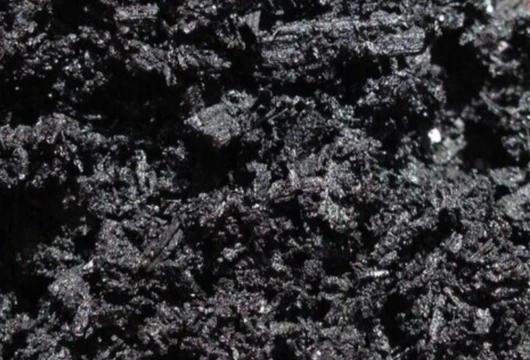Google Expands Carbon Removal Efforts with Biochar Partnerships
In a significant move towards sustainability, Google has announced its first purchase of carbon credits generated from Biochar, reinforcing its commitment to achieving net-zero emissions. The tech giant has signed long-term agreements with Indian startup Varaha and U.S.-based Charm Industrial, aiming to acquire 200,000 tons of biochar carbon credits by 2030.
This strategic partnership highlights the growing role of Biochar as a carbon removal solution, aligning with Google’s broader focus on climate action and sustainable innovation.
Google’s First Large-Scale Biochar Investment
On January 16, 2025, Google officially revealed its plan to purchase biochar carbon credits through two key collaborations:
- Varaha (India): A climate-tech startup specializing in biochar production and carbon sequestration.
- Charm Industrial (USA): A carbon removal company that converts biomass into bio-oil and Biochar.
This marks Google’s first large-scale emissions reduction partnership in India. According to Varaha CEO Madhur Jain, Google will be the first buyer of biochar carbon credits from its facility in Gujarat, which aims to produce 25,000 carbon credits in 2024 alone.
Jain emphasized that Google’s involvement will accelerate the development of carbon removal technologies, particularly for small farmers in India and other Asian regions.
In addition to Google, Swiss Re, a leading reinsurance company, has invested in Varaha’s carbon credits, further solidifying Biochar’s credibility as a scalable climate solution.
What is Biochar, and How Does it Remove Carbon?
Biochar is a carbon-negative material produced through pyrolysis, which heats organic waste—such as rice husks, wood chips, and agricultural residue—in a low-oxygen environment.
How Biochar Captures Carbon:
- Prevents CO2 Release: Instead of decomposing and emitting CO2, organic waste is converted into Biochar, locking Carbon into a solid form.
- Enhances Soil Health: Biochar improves water retention and nutrient absorption when applied to soil, benefiting agricultural productivity.
- Long-Term Sequestration: Biochar remains stable in the soil for hundreds to thousands of years, making it a permanent carbon removal solution.
Why Google is Investing in Carbon Removal
Google’s 2024 environmental report acknowledged a 50% rise in carbon emissions over the past five years, mainly due to increasing energy demands from AI-powered data centers.
To address this challenge, Google has committed to:
- Scaling Carbon Removal Solutions – Expanding investments in Biochar, enhanced rock weathering, and direct air capture.
- Reducing Emissions from Data Centers – Exploring energy-efficient AI processing and carbon-neutral computing technologies.
- Supporting Climate Innovation – Partner with startups developing nature-based and technology-driven climate solutions.
According to Google, Biochar offers an efficient and cost-effective way to remove atmospheric CO2, making it a key component of the company’s net-zero strategy.
The Growing Market for Biochar Carbon Credits
The voluntary carbon market is witnessing a surge in demand for high-quality, durable carbon removal solutions. Biochar carbon credits stand out due to their permanence, scalability, and co-benefits for agriculture.
Why Biochar Carbon Credits Are Gaining Popularity:
- Verified Long-Term Sequestration – Biochar stabilizes Carbon for centuries, ensuring lasting climate benefits
- Agricultural Advantages – Farmers benefit from improved soil fertility and increased crop yields
- Scalability – Biochar production can be integrated into agricultural and forestry waste management systems.
Companies like Microsoft, Shopify, and Swiss Re have already invested in Biochar and other nature-based carbon removal solutions, further validating this market’s potential.
Impact on India’s Carbon Removal Ecosystem
For India, Google’s investment in Varaha represents a significant milestone in the country’s emerging carbon credit ecosystem.
Key Benefits for India:
- Empowers Small Farmers – Provides rural communities with new revenue streams from carbon credit sales.
- Supports Sustainable Agriculture – Promotes eco-friendly farming practices while improving soil health.
- Accelerates Climate Action – Positions India as a leader in carbon removal solutions.
Varaha’s biochar facility in Gujarat is expected to set a precedent for similar projects, encouraging more public and private investments in India’s climate tech sector.
Future of Carbon Removal: What’s Next?
With companies like Google, Swiss Re, and Microsoft investing in biochar-based carbon removal, the future of sustainable climate solutions looks promising.
Key Developments to Watch:
- Expansion of biochar production facilities worldwide.
- Growth of carbon credit markets for durable CO2 sequestration solutions.
- Increased corporate adoption of high-impact carbon removal technologies.
As the world races towards net-zero emissions, Biochar is one of today’s most viable and scalable carbon removal options.
A Step Forward for Carbon Removal
Google’s investment in biochar carbon credits marks a significant step forward in its climate action strategy. By partnering with Varaha and Charm Industrial, the company is paving the way for the large-scale adoption of carbon removal solutions.
This initiative supports India’s carbon credit market and contributes to global climate goals, proving collaboration and innovation are key to a sustainable future.
As carbon removal technologies continue to evolve, Biochar will play an essential role in mitigating climate change. Google’s commitment is a blueprint for other corporations to follow.
For more in-depth analysis and inspiring climate news, click here.

